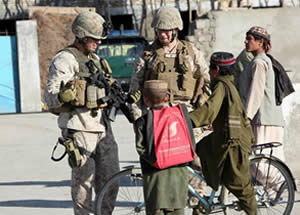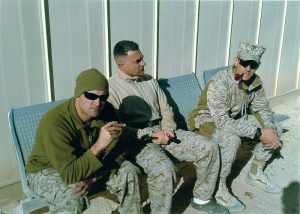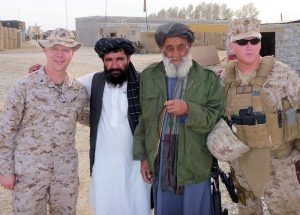Seeking Justice for Victims Injured Through Medical Negligence
The brave men and women serving in the United States military dedicate their lives to protecting our nation. However, when those who have committed themselves to service face harm not from an enemy on the battlefield, but from negligence within the very system meant to care for them, it is a grave injustice that demands attention. It is even more frustrating when veterans witness their dependent(s) injured due to medical malpractice.
One such place where concerns have been raised is the Womack Army Medical Center at Fort Liberty, North Carolina. Reports of medical negligence affecting active-duty military personnel have surfaced, bringing to light the vulnerabilities within military medical institutions and the unique challenges faced by service members.
The case of Army Sgt. First Class Richard Stayskal is particularly poignant. He suffered from a misdiagnosis of lung cancer at Womack Army Medical Center, which delayed potentially life-saving treatment. His struggle led to the passing of the Richard Stayskal Medical Accountability Act, allowing active-duty service members to file claims for personal injury caused by medical malpractice in Defense Department health facilities.
Despite this legislative progress, the path to justice for those affected by medical negligence remains arduous. The process of filing claims is complex and often drawn out, leaving many waiting for compensation and acknowledgment of their suffering. As of now, the number of claims filed and the outcomes remain unclear, with updates from military branches being scarce. Dependents of active-duty servicemembers that are injured may pursue justice through a different statutory framework described below.
The Federal Tort Claims Act
The Federal Tort Claims Act (FTCA) is a federal statute that allows private individuals, including veterans and qualifying dependents, to sue the United States government for damages due to the negligent or wrongful acts of federal employees.
In the context of military medical malpractice, the FTCA helps these individuals by providing a legal avenue to seek compensation for harm or injury caused by the negligence of military or VA medical personnel working at military facilities.
The implications of medical negligence are profound, not only on the health and well-being of service members but also on the trust within the military community. The FTCA provides an avenue for justice, but it is a complicated statutory mechanism where claimants benefit from retaining experienced attorneys to assist them and maximize the potential compensation.
The Long Term Impact of Medical Malpractice in the Military
The military’s response to such incidents is critical. It is not just about addressing individual cases but also about systemic reform to prevent future occurrences. This includes rigorous oversight, transparent reporting, and a commitment to continuous improvement in healthcare services.
For those who have suffered due to medical negligence, acknowledgment and compensation are only the first steps towards healing. There must be a concerted effort to ensure that no other service member endures similar hardships. It is a matter of honor and duty to those who serve.
The stories of those affected by medical negligence at Womack Army Medical Center and other military healthcare facilities are not just individual tragedies; they are a call to action. They remind us that behind the uniforms and ranks, there are individuals with families, dreams, and the right to safe, competent medical care. It is our collective responsibility to ensure that right is upheld.
Contact The Doctor Lawyer Team
At the veteran-owned Doctor Lawyer Team, we understand the complexities of military medical malpractice cases. Our experienced military medical malpractice trial attorneys and in-house medical doctor are here to fight for you and your family. Call [custom:phone:] or email us us to schedule a consultation and seek the help you need.






